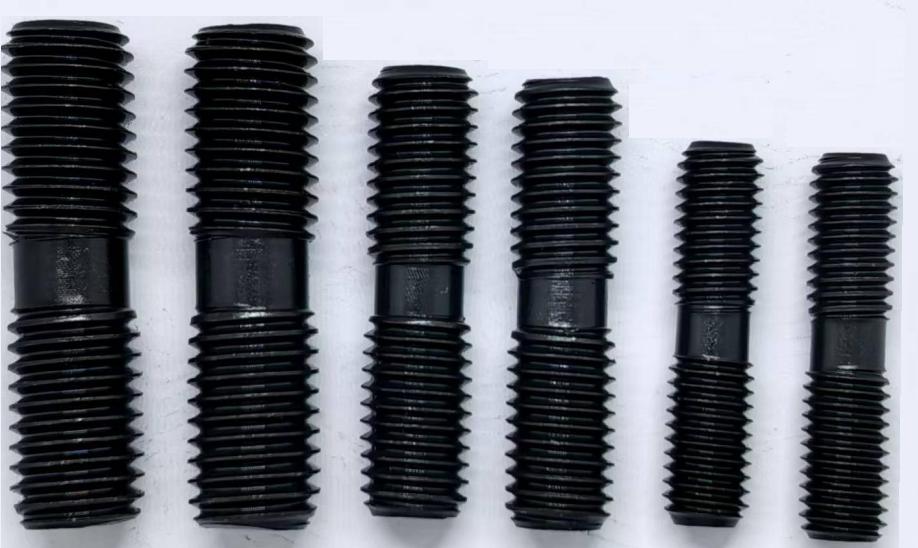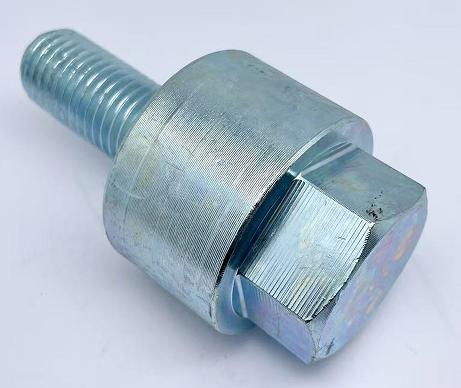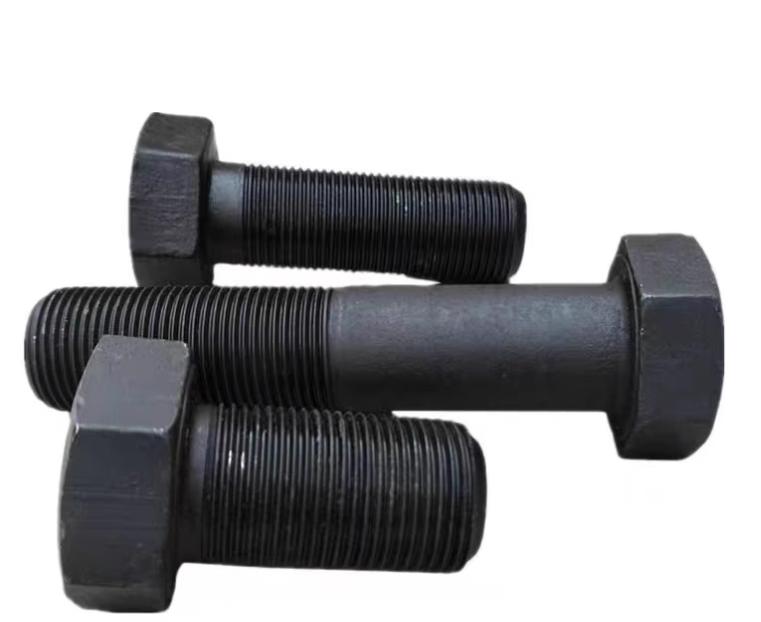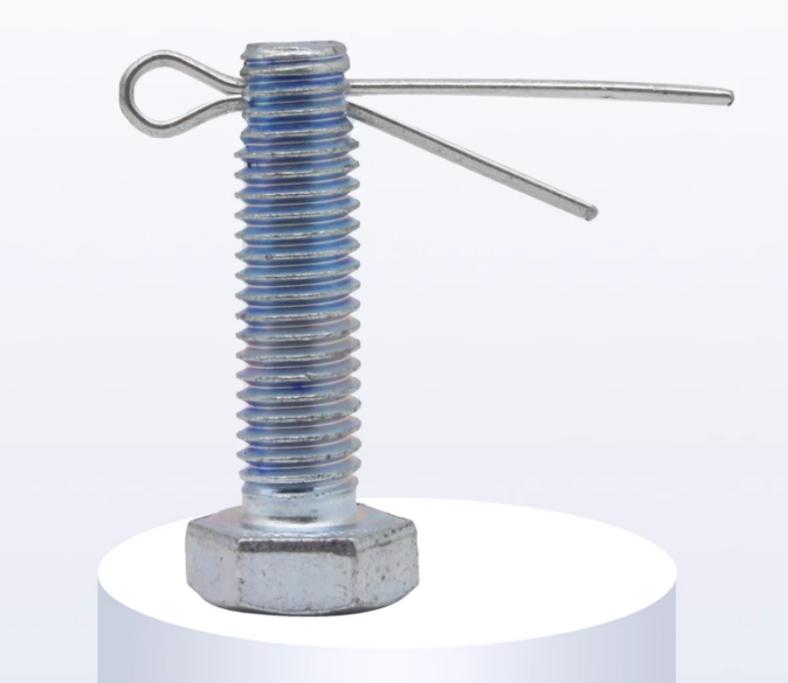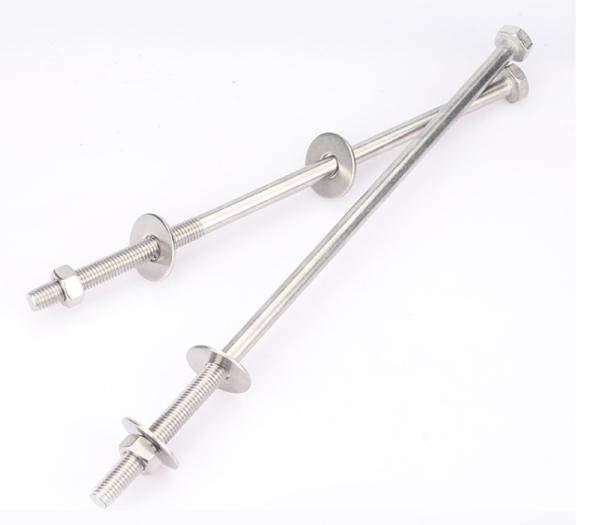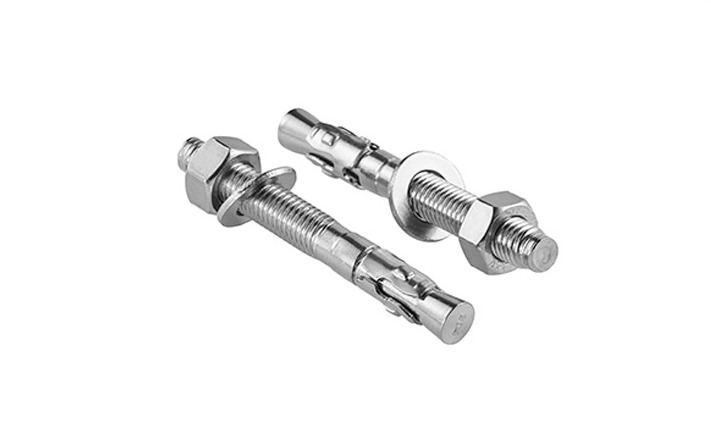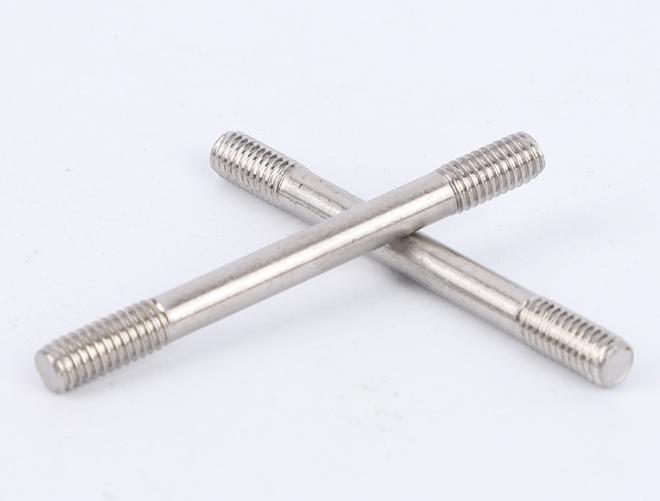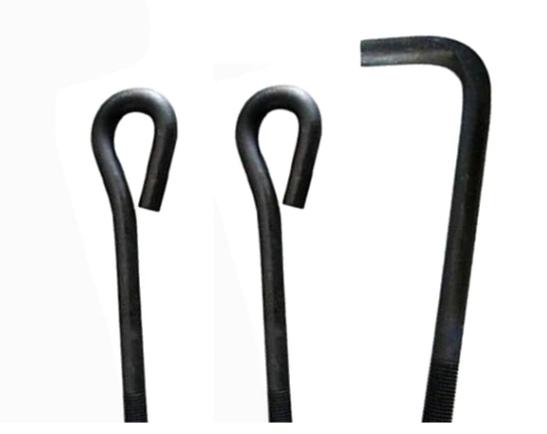Carriage Bolt vs Hex Bolt: What are Their Differences
Table of Contents
Not sure whether to choose a carriage bolt or a hex bolt? As two most common bolts in the world of fasteners, they each offer distinct advantages. Choosing the right bolt is essential for the success of your engineering or construction project.
In this article, we will guide you through the key differences between carriage bolt and hex bolt and help you make an informed decision.
What is a Carriage Bolt?
Carriage bolt is a specialized fastener with a round head and a square neck, typically used for connecting wood or certain metals. It is commonly used in various construction and furniture projects.

Design Features of Carriage Bolt:
- Round Head: The round head design of a carriage bolt ensures a smooth surface after installation, preventing it from protruding and reducing the risk of scratches or other safety hazards.
- Square Neck: The square neck prevents the bolt from rotating when installed into wood, ensuring a secure and stable fastening during use.
- Threads: The threads on a carriage bolt typically start from the neck, providing strong clamping force to prevent loosening, which can be an issue with other types of bolts.
Common Materials: Carriage bolts are typically made of carbon steel or stainless steel. Stainless steel carriage bolts are highly resistant to corrosion, making them ideal for outdoor and humid environments.
Applications: Carriage bolts are widely used for connecting wooden structures, particularly in cases where the bolt head needs to remain concealed.
Examples include fences, gazebos, bridges, and other outdoor installations. They are also commonly used in furniture manufacturing, such as assembling wooden tables and chairs.
Advantages of Carriage Bolt:
- Aesthetic and Secure: The round head design prevents the bolt from protruding, ensuring a cleaner and more attractive appearance.
- Prevents Rotation: The square neck design prevents the bolt from turning during installation, simplifying the process.
- Corrosion Resistance: Stainless steel carriage bolts perform exceptionally well in outdoor environments, resisting corrosion and rust.
What is a Hex Bolt?
Hex bolt is a standard type of bolt with a hexagonal head design, commonly used in applications where high loads and torque are involved. Its unique design makes it suitable for various industrial applications.

Design Features of Hex Bolt:
- Hexagonal Head: The hexagonal head can accommodate a wrench or other tools, allowing for higher torque to be applied, making it suitable for heavy-duty applications.
- Full or Partial Threads: Hex bolts typically offer full or partial thread options, providing different levels of clamping force depending on the requirements.
- Versatility: Hex bolts are adaptable for use with a wide variety of materials, especially in the fastening of metal structures and heavy equipment.
Common Materials: Hex bolts are typically made from high-strength carbon steel, alloy steel, or stainless steel. Depending on the application environment, various materials and surface treatments can be selected to ensure the bolt’s strength and durability.
Applications: Hex bolts are widely used in mechanical manufacturing, construction, heavy equipment, and the automotive industry, especially in applications that require heavy loads and high-strength operations. They are also commonly used in steel structure construction due to their excellent strength and fastening capabilities.
Advantages of Hex Bolt:
- High Strength: Hex bolts have a high load-bearing capacity, making them ideal for applications that require strong connections.
- Ease of Use: The hexagonal shape allows for easy installation and removal with standard wrenches or power tools.
- Durability: Made from high-strength materials, hex bolts are durable and can withstand long-term use without significant wear or damage.
Hex Bolts vs Carriage Bolts: Main Differences Between Them
1. Design and Appearance
Carriage Bolts: Carriage bolts have a round head and a square neck. The unique square neck design allows the bolt to embed into wood or soft materials during installation, preventing it from rotating and ensuring a secure fastening. The round head design prevents the bolt from protruding, offering a smooth, aesthetically pleasing appearance.
Hex Bolts: Hex bolts have a hexagonal head, making it easy to apply more torque with a wrench or other tools. Hex bolts are usually fully threaded or partially threaded, making them suitable for applications requiring high load-bearing and torque capabilities.
2. Applications
Carriage Bolts: Carriage bolts are commonly used for wood connections, furniture assembly, and fixing outdoor structures like fences and gazebos. Their round head design makes them ideal for situations where appearance matters, especially for wooden structures.
Hex Bolts: Hex bolts are widely used in mechanical manufacturing, construction, heavy equipment, and the automotive industry. They are particularly suited for applications that require high load-bearing and strength, such as in steel structures, heavy machinery, and mechanical connections.
3. Load-Bearing Capacity
Carriage Bolts: Carriage bolts are typically used for moderate-load applications, especially for connecting wood and light metals. They are designed for secure fastening, but they do not offer as high load-bearing capacity as hex bolts.
Hex Bolts: Hex bolts offer higher load-bearing capacity and greater torque resistance, making them suitable for high-strength and heavy-duty applications. They are often used in steel structures, heavy machinery, and other high-load environments.

4. Installation and Operation
Carriage Bolts: The square neck design of carriage bolts prevents them from rotating during installation, simplifying the installation process. The round head ensures that the bolt does not protrude after installation, maintaining an aesthetically pleasing appearance.
Hex Bolts: Hex bolts can be installed and removed with standard wrenches or power tools. Their hexagonal head allows for greater torque application, making them ideal for high-strength and high-load applications where quick and secure fastening is required.
5. Corrosion Resistance and Material Selection
Carriage Bolts: Carriage bolts are typically made from carbon steel or stainless steel. Stainless steel carriage bolts are highly resistant to corrosion, making them ideal for outdoor or damp environments.
Hex Bolts: Hex bolts are also made from high-strength materials like carbon steel, stainless steel, or alloy steel. Depending on the application environment, hex bolts can be treated with various surface coatings (such as galvanizing or coating) to enhance their corrosion resistance and durability.
6. Cost and Economical Considerations
Carriage Bolts: Carriage bolts are generally more cost-effective, especially for wood connections and light-duty applications. They are a budget-friendly option for projects that do not require high load-bearing capacity.
Hex Bolts: Hex bolts tend to be more expensive due to their higher load-bearing capacity and strength. However, for heavy-duty applications, their durability and performance make them more cost-effective in the long run, even with their higher upfront cost.

Comparison Summary: Carriage Bolts vs Hex Bolts
| Features | Carriage Bolt | Hex Bolt |
| Appearance Design | Round head, high concealment | Hexagonal head, easy to apply torque with tools |
| Anti-Rotation Ability | Square neck prevents rotation, suitable for embedding into wood or soft materials | Relies on tools and washers to prevent loosening |
| Installation Method | Requires only one tool to secure the nut | Typically requires two tools to operate simultaneously |
| Common Uses | Wood structures, furniture, outdoor facilities, etc. | Steel structures, machinery, automotive industry, etc. |
| Cost | Generally lower in price | Price varies significantly depending on material and application |
How to Choose Carriage Bolt vs Hex Bolt?
Choosing between a carriage bolt and a hex bolt depends on your specific needs and application scenario. Before making the final decision, you can consider the following points.
Application Environment
If you need to connect wood or secure outdoor fixtures, carriage bolts are a more ideal choice, especially excelling in aesthetics and anti-rotation features.
For metal structures or connections that need to withstand high strength, hex bolts are more suitable, providing higher strength and stability.
Load-Bearing Requirements
For projects with high load-bearing requirements, such as machinery or steel structures, hex bolts offer stronger fastening power.
For lighter fastening tasks or projects where aesthetics are important, carriage bolts are a more suitable choice.
Ease of Installation
If you want to simplify the installation process and avoid bolt rotation, carriage bolts are more convenient.
If you have the right tools and need higher torque output, hex bolts will be more advantageous.

In Summary
Carriage bolts and hex bolts each have their advantages and application scenarios, and the choice should be based on the specific needs of your project. If you are looking for carriage bolt or hex bolt, KENENG will meet your high standards. As a professional fastener manufacturer, it offers customized services to ensure that your needs receive the most appropriate solution.
If you have more questions about carriage bolts or hex bolts, or if you need to purchase high-quality bolts, no hesitate to contact KENENG!

